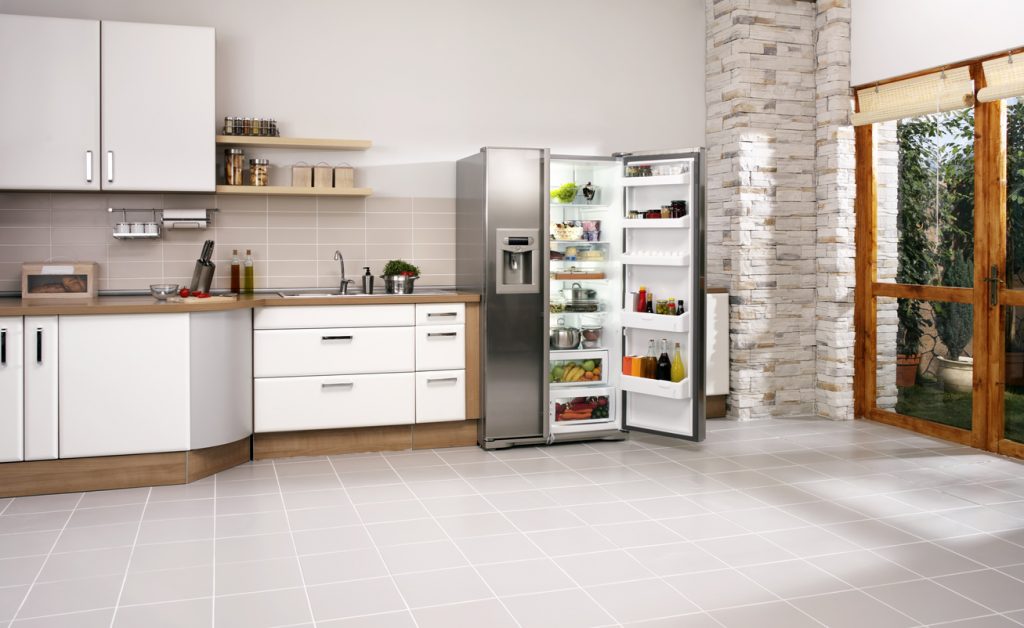
It’s easy to take your refrigerator for granted. It’s quiet and always there when you need it. With an average lifespan of 10-14 years, it is a reliable and essential part of your home. And you probably don’t think much about replacing it, until it breaks.
There’s a good reason to replace it before then, especially if your refrigerator is older. Like most appliances, refrigerators have become more efficient over time. Replacing yours can save energy, reduce your carbon footprint, and lower your monthly electricity bill.
A refrigerator that is 15 years old or older uses twice as much energy as a new ENERGY STAR model. Depending on the model you’re replacing, making the switch to a new ENERGY STAR refrigerator could reduce your carbon footprint by 8,200 pounds, and save you as much as $260 over the next five years, according to the U.S. Department of Energy.
Use the DOE’s Flip Your Fridge calculator to figure out how much you will save. You’ll need to know how much you’re paying per kilowatt hour for electricity, but don’t worry if you aren’t sure. The calculator includes a guide showing average utility prices in each state.
July 4th is coming up, and plenty of retailers will be running sales on appliances. Take advantage of this chance to Flip Your Fridge, and start saving.
Making the switch: Many retailers will haul away your old refrigerator as part of the deal. If they don’t, be sure to recycle your old refrigerator so that the refrigerant and foam can be disposed of properly, further reducing carbon pollution. Find a refrigerator or freezer recycling program.
And you may want to think twice before keeping your older refrigerator running in your garage or basement. Depending on the age of the older refrigerator, you could be driving up your energy use unnecessarily. Consider putting a new, smaller unit elsewhere in your home—not in the garage, where fluctuation temperatures can force the refrigerator to work harder to keep the contents cold, using even more energy.




